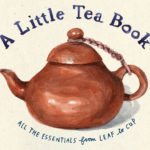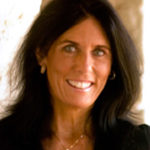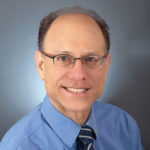The Answer Asks Questions

In a fear-saturated, information-overloaded, post-9/11 culture, what do we really need? Not more answers that don’t fit us as individuals, says Rabbi Jennifer Krause. In The Answer: Making Sense of Life, One Question at a Time, Krause helps us (quoting sources ranging from Kahlil Gibran to Alice Cooper) to craft personal answers to universal human questions. These unique, individualized answers, she says, are the ones that can truly inspire us to take needed action.
You refer to yourself as a “rabbi without borders.” What does that mean?
I’ve taken an unconventional path as a rabbi. I don’t have one pulpit. I write, and I lecture all around North America. I work out of my local coffeehouse here in Manhattan; I call it my satellite office, but tomorrow, for example, I’ll be speaking at the Texas Conference for Women, where 8,000 women will be in attendance. I’ve also contributed to magazines, like Newsweek and O, The Oprah Magazine.
This is your first book. What led you to write it?
It stems from a cultural phenomenon I have been watching for many years, especially for the last six. I call it “answer addiction.” There have been something like 7,000 self-help books published in the U.S. in that time. It made me think: if a book filled with answers really worked, not only would we not need 7,000 of them, but at some point in human history, somebody would have long ago written a book that had all the answers.
So I wanted to help usher in the next generation of self-help. I wanted to create a book that helps people to use life’s powerful questions to get them to come up with their own answers.
A question you challenge people to ask themselves is, “What’s to Fear?” Why start with that?
Fear is an enormous, natural obstacle for every human being. How do we become aware of fear, but not let it drive the choices we make? It may not be a coincidence that the difference between “scared” and “sacred” is just the position of two letters. What I hope to do in this chapter is help show the difference between paralyzing “imposter” fear and sacred, life-generating fear that you can use to inspire you to action.
Another question is, “Am I Good?” That’s the human conundrum, isn’t it?
Yes, and the important thing, if that’s the main question life is sending you right now, is to figure out why life is doing that. Are you asking it because someone is criticizing you? Or is it because you, personally, feel you are missing the mark? There are lots of ways to ask these questions of yourself; you have to do it in the way that is right for you.
And when you pose the question “When Will I Grow Up?” what do you have in mind for the reader?
If we are very fortunate – and Dr. Weil’s book, Healthy Aging, speaks to this – we can live long enough to have many lifetimes over the course of one life. You can lose a job, get a job, end a relationship, or get a frightening diagnosis, and these are all rites of passage in progress. They are all a part of adding another page to our book of life.
Which means that, to some extent, you are never really grown up, because there is always another chapter waiting to be written. Many religions, including Judaism, have ways of celebrating life passages. But there could not possibly be enough of these celebrations to reflect the many transitions that we go through. So I want this chapter to help people find ways to identify and mark these transformational moments; to be aware of their personal rites of passage and be empowered by them.
One of the key questions for so many of us is, “What’s it All About?” I don’t want to ask that one of myself, I want you to answer it for me.
This is truly a fundamental human question. Other ways to frame it are, “What am I living for?” “How shall I spend my time?” “How should I structure my life?” For some people, the answer will spring from religion. For others, social justice. Or it may be intellectual rigor, or love, or some combination of these. This chapter is about helping people to understand what it is that they truly hold most dear at the moment when life sends them that question. And then, realizing how they can turn what they value into action.
Learn more about Jennifer Krause and “The Answer” at www.jenniferkrause.net









